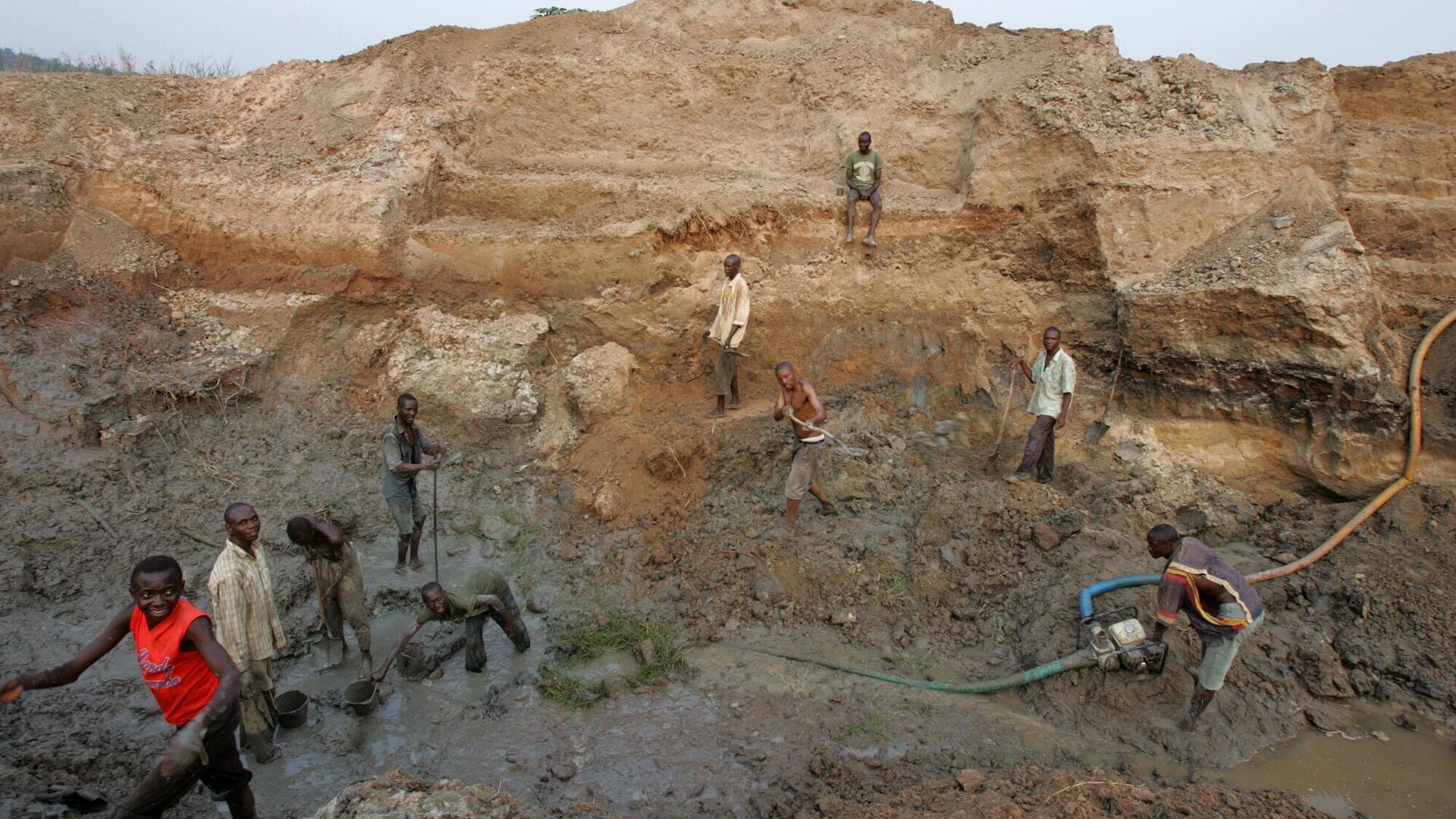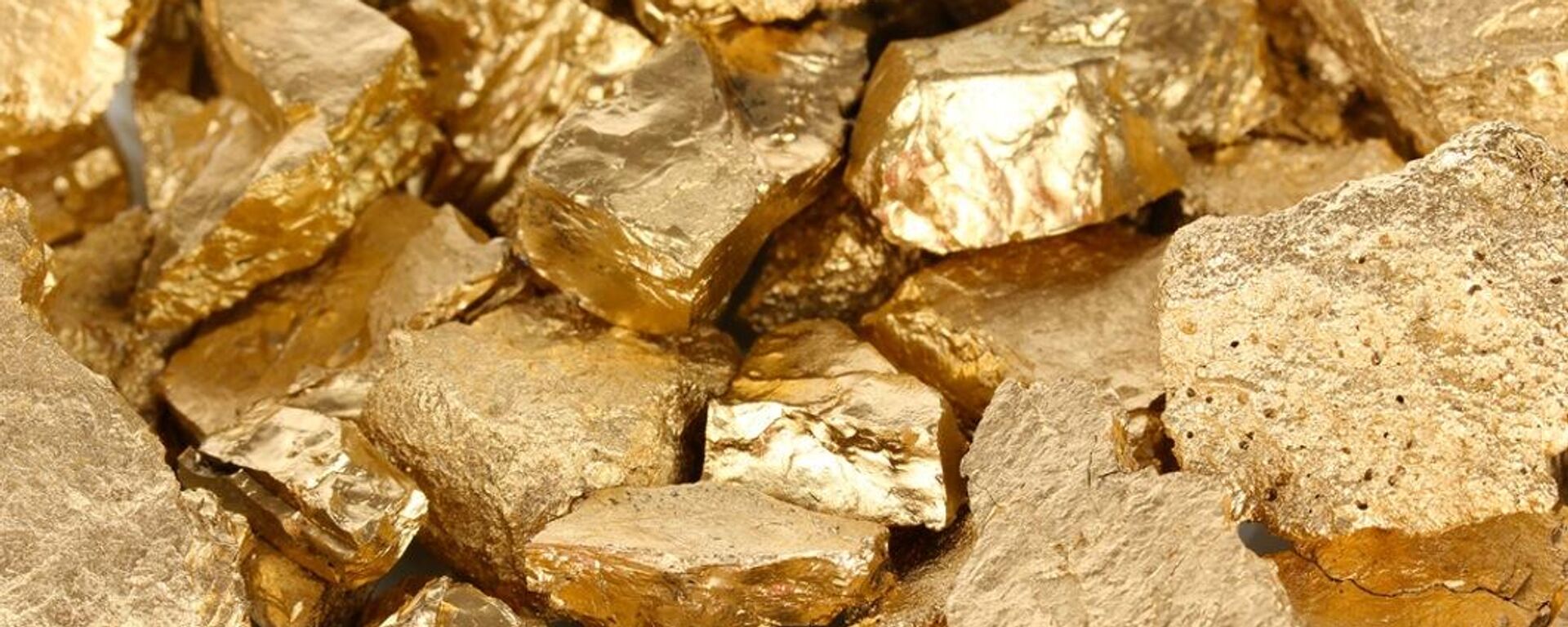https://en.sputniknews.africa/20240801/natures-solution-to-toxic-gold-mine-waste-bacteria--plants-offer-hope-for-south-african-community-1067703493.html
Nature's Solution to Toxic Gold Mine Waste: Bacteria & Plants Offer Hope for South African Community
Nature's Solution to Toxic Gold Mine Waste: Bacteria & Plants Offer Hope for South African Community
Sputnik Africa
Acid mine drainage, a byproduct of mining activities, poses a significant health risk to local communities in South Africa. It leaches toxic metals like... 01.08.2024, Sputnik Africa
2024-08-01T18:13+0200
2024-08-01T18:13+0200
2024-08-01T18:13+0200
sub-saharan africa
south africa
mining
minerals
gold miners
environment
southern africa
research
https://cdn1.img.sputniknews.africa/img/07e7/0b/07/1063386303_0:146:2000:1271_1920x0_80_0_0_1e029ff2b426896fe604514ac8905590.jpg
A new study conducted by a team of South African chemists has identified a promising solution for cleaning up highly toxic waste from abandoned gold mines in Krugersdorp. The study proposes a combination of bioremediation techniques using plants and bacteria to tackle the problem of acid mine drainage.The study suggests a two-pronged approach:This combination is seen as particularly effective for the Krugersdorp area due to the high sulfate and metal content of the acid mine drainage. Furthermore, the study highlights the cost-effectiveness of these natural solutions compared to traditional, often expensive, and inefficient methods.The researchers urge the South African government to invest in these technologies to protect the local community from the harmful effects of decades-old mine waste. They emphasize the urgency of action, as children have been seen playing on the mine dumps, and people swim or even hold baptisms in local dams.
https://en.sputniknews.africa/20240501/south-africas-harmony-increases-its-projected-gold-production-this-year-by-about-5-1066318701.html
south africa
southern africa
Sputnik Africa
feedback@sputniknews.com
+74956456601
MIA „Rossiya Segodnya“
2024
Muhammad Nooh Osman
https://cdn1.img.sputniknews.africa/img/07e7/04/0a/1058467512_0:0:1280:1280_100x100_80_0_0_ec723833bcbfcaed2e21952965ad99e4.jpg
Muhammad Nooh Osman
https://cdn1.img.sputniknews.africa/img/07e7/04/0a/1058467512_0:0:1280:1280_100x100_80_0_0_ec723833bcbfcaed2e21952965ad99e4.jpg
News
en_EN
Sputnik Africa
feedback@sputniknews.com
+74956456601
MIA „Rossiya Segodnya“
Sputnik Africa
feedback@sputniknews.com
+74956456601
MIA „Rossiya Segodnya“
Muhammad Nooh Osman
https://cdn1.img.sputniknews.africa/img/07e7/04/0a/1058467512_0:0:1280:1280_100x100_80_0_0_ec723833bcbfcaed2e21952965ad99e4.jpg
south africa, mining, minerals, gold miners, environment, southern africa, research
south africa, mining, minerals, gold miners, environment, southern africa, research
Nature's Solution to Toxic Gold Mine Waste: Bacteria & Plants Offer Hope for South African Community
Muhammad Nooh Osman
Writer/Editor
Acid mine drainage, a byproduct of mining activities, poses a significant health risk to local communities in South Africa. It leaches toxic metals like uranium, arsenic, cadmium, chromium, and mercury into the environment, contaminating soil and groundwater and posing risks to human health.
A new study conducted by a team of
South African chemists has identified a promising solution for cleaning up highly toxic waste from abandoned gold mines in Krugersdorp. The study proposes a combination of bioremediation techniques using plants and bacteria to tackle the problem of acid mine drainage.
The study suggests a two-pronged approach:
Phytoremediation: Using plants to absorb toxic metals from the soil.
cloSURE Technology: Employing anaerobic bacteria to remove metals and sulfates from the contaminated water.
This combination is seen as particularly effective for the Krugersdorp area due to the high sulfate and metal content of the acid mine drainage.
Furthermore, the study highlights the cost-effectiveness of these natural solutions compared to traditional, often expensive, and inefficient methods.
The researchers urge the
South African government to invest in these technologies to protect the local community from the harmful effects of decades-old mine waste.
They emphasize the urgency of action, as children have been seen playing on the mine dumps, and people swim or even hold baptisms in local dams.



